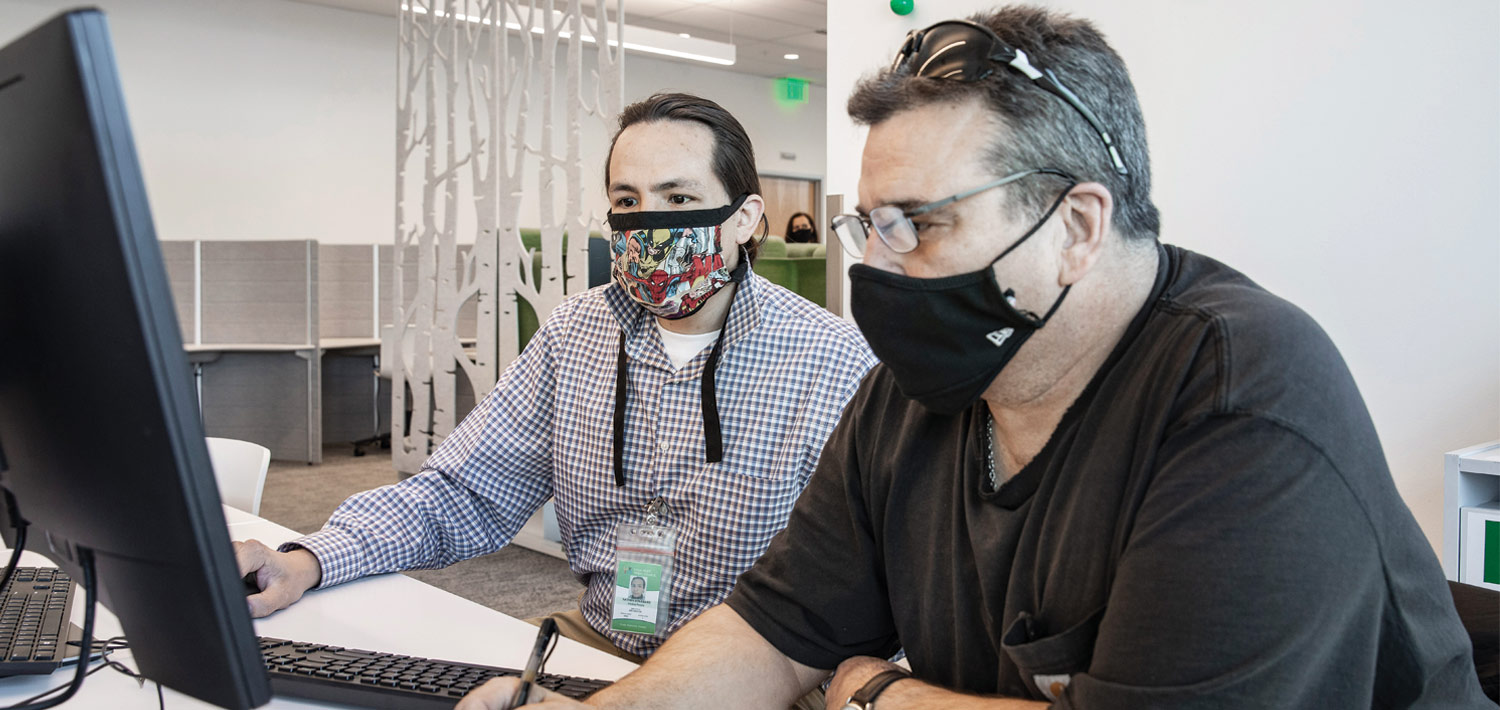to
COVID-19
isk assessment companies will tell any business owner that having a crisis plan in place is crucial. In Alaska that means being prepared for a lot of potentially disastrous scenarios—earthquakes, snow and ice, fires and smoke, even bears or moose. And now businesses have added pandemics their risk mitigation plans.
This year as part of the Best of Alaska Business awards surveying process, we asked you which businesses have been particularly impressive with their response to a whole new set of challenges presented by COVID-19.
While state and local leaders were scrambling to figure out how to best protect the public, companies small and large were carefully, quickly, and thoughtfully determining how to protect their employees and customers—not just from the virus, but from job losses and financial distress. As classrooms closed and students were sent home to learn, families had to adjust their work schedules to accommodate yet another significant change to their lives and companies had to figure out how to help them.
From restaurants and retailers to banks and hospitals, our readers answer the question: What company impressed you with its COVID-19 response? And why?
As another reader pointed out, “David and Jason fed 1,500 meals a day for quarantined people.”
And: “49th State Brewing installed UV-c lights to sanitize the building and UV-c lights in the HVAC system to sanitize the air. Employees fill out daily screening and temp check, walk through a shoe sanitizing bath, wear gloves and masks, and maintain rigorous safety procedures.”
And: “completed tax work seamlessly while working remotely, mailing tax clients their finished tax returns and didn’t even charge [for] the additional expense.”
Brian Fraley | Cook Inlet Tribal Council

Brian Fraley | Cook Inlet Tribal Council
And also: “ASRC Energy Services, incredibly proactive and took care of their employees by acting early and paying for costs associated with quarantining in Anchorage.”
“Moose’s Tooth put its team members’ safety first which as a patron I really appreciated. They also fine-tuned their safety protocols to make patrons feel as safe as possible. Their procedures for takeout were the best of the restaurants we supported and continue to be as they transition to more and more in-house dining while supporting those of us, as patrons, who are still not quite ready to dine-in. Massive kudos to the entire Moose’s Tooth team!”
And: “Not only did CITC help the Alaska Native and American Indian homeless population, they entered into and started helping all homeless Alaskans who needed help with supportive services to focus on becoming job ready. CITC also helped make sure the families that they serve had the PCs, desk/workstation, and internet needed in order for children to go to school from home. Now that’s going above and beyond, if you ask me.”
And: “Credit Union 1 [was] able to do curbside pick-up for debit cards, credit cards, [to] sign loan documents curbside and electronically; this is important stuff for us members when we are used to in-person transactions.”
And: “They were out front and took steps in January. They were actually ahead of the Muni and State on enacting steps to protect employees and customers. More important: they created free and reduced rate internet plans for Alaskans who found themselves working and learning from home.”
And echoing that sentiment: “The Hungry Robot because they were able to operate at a normal capacity for their customers and the owner was able to [give] back to the community with free pizza lunches for children of families that were financially affected by the dip of the local economy.”
Wayde Carroll | Cook Inlet Tribal Council

Wayde Carroll | Cook Inlet Tribal Council
And: “Southcentral Foundation was forward thinking in providing COVID testing, vaccinations, and care, to all community members.”
These answers show that, as the pandemic swept through the nation, it was safety and security that remained paramount for everyone. By shifting to remote work when possible, rethinking policies related to sick leave and dependent care, and even increasing pay or providing bonuses, companies around the state proved that they’re not just about profit and the bottom-line.
Maybe the changes made over the last year or so have laid the groundwork for a whole new way of thinking about how we work. Together. ![]()